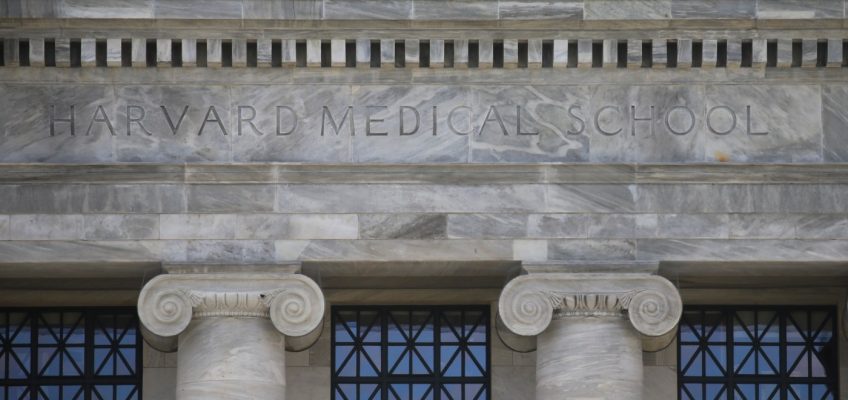The mess of lawsuits filed in the wake of the Harvard Medical School body-parts trafficking scandal could become less complicated if a motion to consolidate the cases filed in a state court succeeds.
The motion seeks to combine eight lawsuits filed in Suffolk Superior Court targeting Harvard for culpability, arguing that the “cases arising out of the desecration and mishandling of remains entrusted to Harvard’s Anatomical Gift Program … all involve common questions of law and fact.
“Consolidation will avoid unnecessary duplication and waste of judicial resources, will streamline and simplify the proceedings, will prevent undue delay of the case, will provide parties with greater efficiency and will assist in securing the ‘just, speedy and expensive’ determination of the issues in this case,” the motion continues.
It also designates two attorneys, Jeffrey Catalano and Kathryn Barnett, as co-lead counsel in the proposed merger of the lawsuits, with other attorneys who had filed lawsuits serving as liaison or members of the plaintiffs’ steering committee.
Cedric Lodge (Courtesy / Suffolk Superior Court)
“These families have suffered an unthinkable betrayal by Harvard, and I’m honored that they have put their trust in Morgan & Morgan to fight for them and to seek justice for their loved ones,” Barnett, of the law firm Morgan & Morgan said following the filing.
“I’m grateful that so many esteemed law firms have entrusted me to help lead this litigation. We are all working together to fight for every case and are committed to holding Harvard accountable for their responsibility in this atrocity,” she continued.
Harvard has repeatedly stated that it does not comment on ongoing litigation.
Catalano, along with attorney Jonathan Sweet of the Milton-based Keches Law Group, P.C., were the first to file a lawsuit, in which they estimated that the parts of up to 400 bodies could be involved. Barnett’s lawsuit appears to have been the fourth, all of which were seeking class-action status, filed in the fallout of the alleged body-parts trafficking ring.
In June, the U.S. Attorney for the Middle District of Pennsylvania announced that several people purported to be connected to a ring trafficking body parts stolen from the morgue associated with the Harvard Medical School’s Anatomical Gift Program had been indicted.
Those defendants include Cedric Lodge — a morgue employee who according to one of the lawsuits drives a car with a plate reading “GRIM-R,” for “Grim Reaper” — of Goffstown, N.H., and four others, including his wife, Denise Lodge.
Jeremy Lee Pauley
One of the defendants, a Pennsylvania man named Jeremy Lee Pauley, whose website describes him as “the lead preservation specialist of retired medical specimens and curator to historic remains and artifacts” for his museum, Memento Mori, has already pleaded out and admitted to the factual allegations of the ring.
The story has captivated readers, and left many family members of those who donated their body to science horrified. As Jack Porter, whose wife Dr. Raya Porter had willed her body to the program and whose body Porter suspects of being sold piecemeal, told the Herald, “What bothers me is that there’s somebody in some basement somewhere in this country or elsewhere fondling my wife’s body parts.”
Jack Porter holds his wedding photo featuring his late wife, Dr. Raya Porter, whose organs may have been sold in the Harvard medical scandal. (Paul Connors/Boston Herald)


Leave a Reply